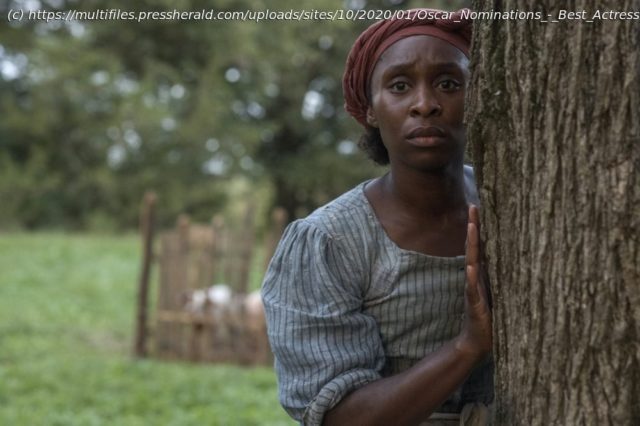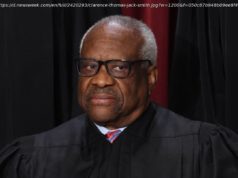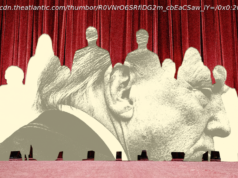The entertainment industry’s long history of failures when it comes to race continues to weigh on the minds of many of the black filmmakers, executives and others.
LOS ANGELES — After George Floyd’s killing in the custody of Minneapolis police last month, Hollywood entertainment companies sent out a flurry of statements supporting the Black Lives Matter movement’s fight against police brutality and systemic racism.
Studios, music labels and streaming services promised donations to antiracist nonprofits and declared their commitment to diversity. Internal memos called for reflection on the industry’s poor record of inclusion and diversity.
Still, the entertainment industry’s long history of failures when it comes to race continues to weigh on the minds of many of the black filmmakers, executives and others interviewed by The Los Angeles Times. Many note the stark absence of black executives in studios’ ranks. The Writers Guild of America West’s Committee of Black Writers on Friday published an open letter to studios demanding that actions follow words.
The Times interviewed nearly two dozen black entertainment industry professionals, spanning directors, producers, writers, designers, agents and executives. They discussed systemic racism in Hollywood, what needs to change and their frustration with years of talk and little action.
“This conversation needed to happen for a long time about racism and race in our industry,” said Cynthia Erivo, the actor, singer and songwriter who was nominated for two Oscars for 2019’s “Harriet.” “It feels like for the first time people are listening.”
Will Packer, producer, “Girls Trip,” “Night School”: I, like many people in the business, have been contacted by my white colleagues and peers, reaching out to say, “Where do we go from here?” I welcome that. We’ve been here and felt this before. For many of us, it’s a generational anger and a generational exhaustion. But at the same time, there is something different this time. I didn’t get this volume of calls around Trayvon Martin, Michael Brown or Eric Garner.
Ava DuVernay, director, “When They See Us,” “Selma”: You have certain people who are really reaching in, in a way that’s active and progressive, and you have folks that are going through the motions. And in this moment, there are no more motions. That kind of empty exercise is being duly noted by me and others.
Kasi Lemmons, director, writer, “Harriet,” “Eve’s Bayou”: I’ve had some time to think about these diversity reports that came out last year. Looking back 12 to 13 years, the numbers are so bleak especially in terms of what I am doing: writing and directing — and especially for directors of color and underrepresented women, they made less than 1% of the studio movies. That gave me pause. Because you expect or hope what seems obvious in an industry that deals with aspirations and inspiration, it feels like a perfect place for us to be our better selves.
DeVon Franklin, chief executive, Franklin Entertainment: How can what happened to Ahmaud Arbery, George Floyd, Breonna Taylor, or so many other countless black men and women who’ve lost their lives, happen? Because there’s a dehumanization. That dehumanization is by no means completely at the doorstep of Hollywood. However, when you see the persistent images that Hollywood portrays of black men and women in demeaning positions, being violent and so forth, it contributes to the dehumanization.
Darrell D. Miller, lawyer, entertainment department Chair, Fox Rothschild: What Hollywood can do, I think, is to actually act upon some of the changes that have literally been talked about for years: Bring more images, more voices, more talent, more producers in the rooms to create content more representative of our society.
John Ridley, screenwriter, “12 Years a Slave”: This is not charity, it’s not do-good work. These are amazing individuals. The talent is here, the will is here, the moment is definitely here, and I just get tired when people of good hearts and right minds say, “I’m going to donate.” But what are you doing? In terms of staffing showrunners, did you even interview a person of color for that position, or did you hire them because they were someone’s friend?
Lorrie Bartlett, co-head of talent department, partner and board member, ICM Partners: First of all, it’s [about] educating people and shining a light on unconscious bias, antiracism and antihate. It’s not enough to say, “Oh, but I’m not a racist.” There needs to be a real sense of understanding, by omission and silence contributing to a problem that exists. That is the first step.
Nina Shaw, a founding partner of Del Shaw Moonves Tanaka Finkelstein & Lezcano: There are lots of people asking me what I think they should do. My response is the same: You, as white people, should speak to each other. I want you to take ownership, I don’t want you to ask me what you should do. It’s always the same: Treat it like it really mattered to you. Every bonus now should be based on how diversity has been achieved.
Ashley Holland, agent, WME: Clients can demand this type of representation incorporated into their teams. If a powerful actor or director has someone trying to sign you, you can say you’re not interested in signing if there’s not a black or brown person or woman on the team.
Home
United States
USA — mix Black filmmakers and executives get honest about their experiences in Hollywood






